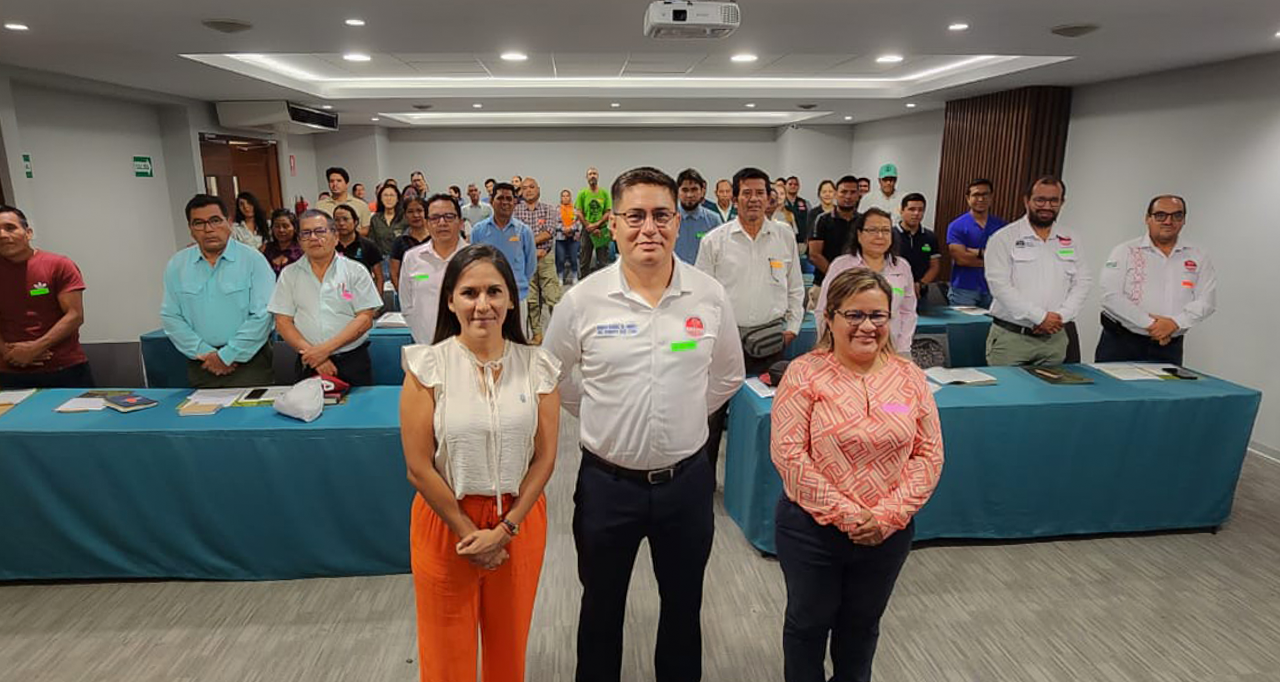

In an effort to address the critical environmental situation in Loreto, a workshop was successfully held to socialize and validate the “Diagnosis of bottlenecks in the prioritized camu camu, aguaje, melipona honey and chambira chains” in the Loreto region. This event, framed within the collaboration between Conservation International Peru and the Regional Government of Loreto, seeks to socialize the findings of a study that focuses on identifying the challenges and opportunities in the aforementioned chains. In addition, during the event various local stakeholders enriched and deepened the findings of the study to explore possible recommendations for the problems identified.
This workshop is part of a joint effort between the Regional Government of Loreto, through its Economic Development Management and Regional Environmental Management; the Forest Finance Investment Incubator (FFII) project, funded by the U.S. Department of State; and the Amazon Business Alliance, led by USAID, the Government of Canada and Conservation International Peru. The event brought together different actors seeking to promote sustainable development strategies, such as economist Sofía Sánchez, Regional Manager of Economic Development in Loreto, engineer Roberto Ruiz, Regional Environmental Manager, and Yadira Diaz, manager of Landscape Loreto, from Conservation International.
Loreto, which has lost significant tracts of forest over the last few decades, is in a critical situation. According to the Ministry of Environment (MINAM), between 2001 and 2020, Loreto had lost approximately 1,895,171 hectares of forest. This problem persists, and deforestation in the region not only threatens biodiversity, but also negatively impacts the quality of life of local communities. Sustainable management of forest resources and compliance with regulations are key to reversing this trend.
In this context, Natalia Cauvi, Conservation International’s Environmental Policy Manager, highlights the importance of the study and especially of this event, as well as the commitment to address the critical environmental situation in Loreto.

“The diagnoses of prioritized chains and their bottlenecks are a fundamental tool for understanding the challenges and designing strategies that promote conservation and sustainable development in the region through sustainable economic activities. Identifying and working with the key agents associated with deforestation will allow us to implement effective and transformative interventions.”
Thus, bio-businesses emerge as a strategy to not only reverse deforestation but also generate economic opportunities for the local population.
“bio-businesses in the prioritized chains, such as melipona honey, are a way to take advantage of resources in a sustainable manner and promote the conservation of the great biodiversity of the region. From the Amazon Business Alliance we are committed to supporting business models with triple impact, thus contributing to sustainable development in the region and the welfare of its communities”.